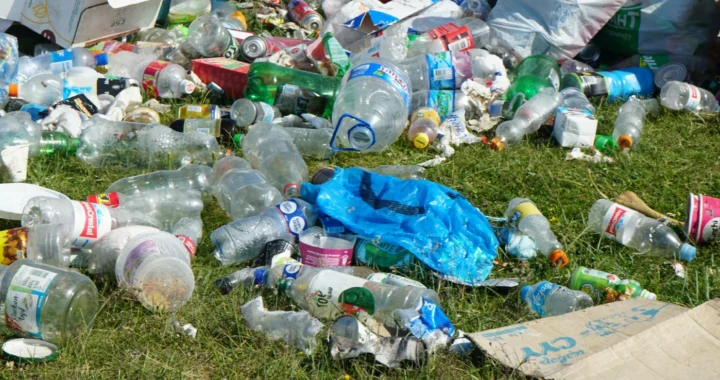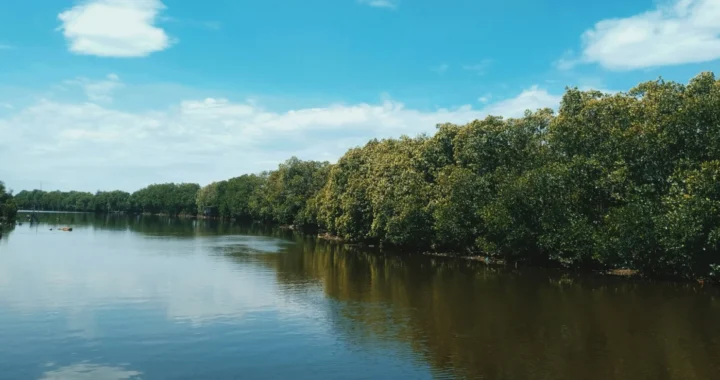Imparting Actionable Knowledge Through Sustainability Training Activities

Illustration by Irhan Prabasukma.
The pathway to sustainability is a shared journey. Thus, each contribution from all walks of life matters. Sustainable development itself hinges on the principle of leaving no one behind. Therefore, imbuing the concept of sustainability in all of society is key. What’s even more important is to impart actionable knowledge so more people can easily participate in our effort to create a better world for people and the planet, starting with ourselves and our small communities.
Actionable Knowledge for Meaningful Change
The landscape of society—especially business—is changing to fit our needs. Amid climate change, biodiversity loss, and rampant pollution, the urgency to shift toward sustainable systems is undeniable. Hence, preparing ourselves and our communities to adapt to these changes is crucial.
I am a freelance trainer for MSMEs. For many developing countries, small and medium-sized enterprises (SMEs) are the backbone of their economies. In Southeast Asia, for instance, SMEs represent 97-99% of businesses and employment opportunities. So, empowering them as actors in sustainable development is a key strategy.
However, introducing and implementing sustainability concepts, including the SDGs (Sustainable Development Goals), is not easy. Inspiring lasting, meaningful changes on the ground after training sessions can be a challenge if participants don’t know where to begin. They can be difficult or even impossible to implement individually, let alone in the workplace or the broader environment. Moreover, another difficulty lies in dealing with stakeholders beyond our control, such as structural social issues, the government, and the environment.
Therefore, it is vital to acknowledge that beyond statistics and theories, sharing actionable knowledge and down-to-earth activities are necessary. Then, the first step is to identify activities that we can control and that are within our capabilities, and focus on those activities.
Case Study: MSME Training Sessions
Before the COVID-19 pandemic, snacks and lunches during MSME training sessions were served buffet-style. They took food, beverages, plates, cups, glasses, forks, and spoons by themselves.
Under regular circumstances, cutleries would be left unattended after eating, as there were no receptacles available. Participants simply left them on the training table, under chairs, or anywhere else. In a sustainability training session, this becomes an opportunity to conduct training on improving the management of dirty dishes and food waste. By doing so, we present actionable knowledge in practice, not just theory.
In preparation, we need to find a relatively spacious area, like a big table or floor space. Then, we must prepare a dedicated container for food scraps, which can be a bucket or a black plastic trash bag. Next to it, there should be clearly labeled containers for dirty plates, cutleries, and drink wares. Thus, after participants eat during breaks or lunch, they can and must take care of their own food waste and dirty dishes, sorted according to the labeled containers.
After the COVID-19 pandemic hit, food service has changed, affecting situations within sustainability training sessions as well. Still, snacks and meals in boxes can be a learning opportunity. Trainers can prepare different waste bins for different categories: organic food scraps, paper waste for boxes and tissues, and plastic waste for cutleries and cups.
These activities can be done daily during the training, creating a new habit. More importantly, they should spark discussions about food waste, waste sorting, and consumption patterns. For several days of training, participants are gradually encouraged to practice orderly eating habits to avoid waste. They also get to learn how to properly group items for waste management. This allows for hands-on practice, not just conceptual instruction. Even when only implemented peripherally or supplementary, these activities serve as actionable knowledge that participants can bring back to their communities.
Further Development of Sustainability Training
Ultimately, actionable knowledge and creative, controllable, hands-on activities need to be explored more in sustainability training sessions. For example, does the venue provide water dispensers if we provide tumblers for drinking? Is the lighting adequate for participants of all ages? Can the paper used in the training be a topic for discussion on green or sustainable products?
Sometimes, further consideration, mitigation, and anticipation are necessary for conducting unusual activities and ensuring inclusivity in capacity development. After all, it is the responsibility of training instructors and organizers to facilitate learning for all and inspire real change in all levels of society, from MSMEs to higher managerial and executive level participants.
Editor: Nazalea Kusuma
IS2P Column is a dedicated content platform of the Indonesian Society of Sustainability Professionals (IS2P) in collaboration with Green Network Asia. IS2P Column provides space and editorial support for IS2P members to disseminate their practical insights, experiences, and wisdom, aiming to promote sustainability education in society.
Partner with Green Network Asia:
Launch and publish a dedicated content platform “Column” under your organization’s name, and benefit your leadership & management team, employees, and members of your community with publication credits and editorial support from Green Network Asia, including curation, editing, visual design, publication, and dissemination services.

Co-create positive impact for people and the planet.
Amidst today’s increasingly complex global challenges, equipping yourself, team, and communities with interdisciplinary and cross-sectoral insights on sustainability-related issues and sustainable development is no longer optional — it is a strategic necessity to stay ahead and stay relevant.
Yanto Pratiknyo
Yanto is a trainer and expert in Entrepreneurship and Integrity & Anti-Corruption at GIZ. He holds a bachelor degree from Electrical Engineering in Universitas Gadjah Mada, Indonesia, and a Master of Arts in Entrepreneurship from the Ohio State University, USA.


 Waste-to-Methanol, a Potential Sustainable Solution for Waste and Energy
Waste-to-Methanol, a Potential Sustainable Solution for Waste and Energy  In Peru, Stingless Bees Are Granted Legal Rights
In Peru, Stingless Bees Are Granted Legal Rights  Looking into the Government Regulation on the Protection and Management of Mangrove Ecosystems in Indonesia
Looking into the Government Regulation on the Protection and Management of Mangrove Ecosystems in Indonesia  Integrating Systemic Renewable Energy Innovations for Energy Transition
Integrating Systemic Renewable Energy Innovations for Energy Transition  Nepal’s Five-Year Strategy to Clean Up the Mounting Waste in Mount Everest
Nepal’s Five-Year Strategy to Clean Up the Mounting Waste in Mount Everest  Exploring Public Health Implications of Data Centers
Exploring Public Health Implications of Data Centers